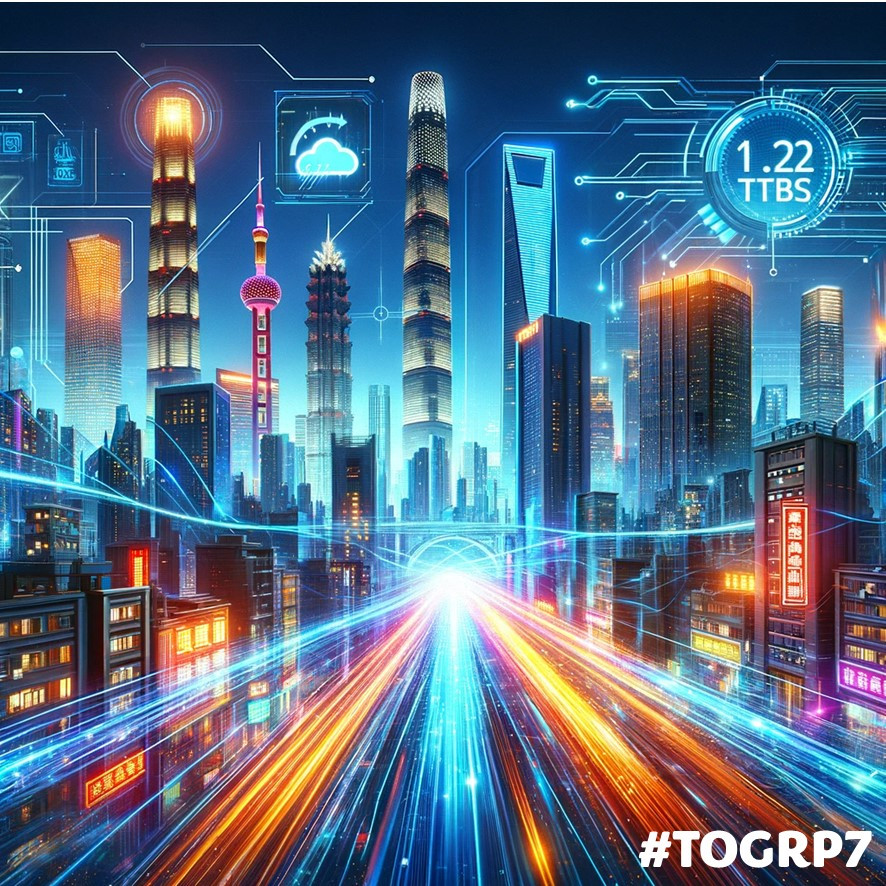Understanding the Magnitude: What Does 1.2 Tbps Mean?
The Basics of Internet Speed
Before we dive into the specifics, it’s crucial to understand what 1.2 Tbps signifies. Internet speed is measured in bits per second, and one terabit equals one trillion bits. This speed indicates an unprecedented level of data transmission capabilities.
Comparison with Current Standards
To put it into perspective, the average global internet speed hovers around 100 Megabits per second (Mbps). The leap to 1.2 Tbps is not just an improvement; it’s a revolution in data transfer technology.
The Journey to 1.2 Tbps
Historical Progression of Internet Speeds
The journey to this point has been long and filled with incremental advancements. From dial-up connections to the introduction of broadband, each step has been instrumental in paving the way for this moment.
China’s Role in Internet Evolution
China has always been at the forefront of digital innovation. This latest development is a testament to the country’s commitment to leading the global technology race.
How 1.2 Tbps Internet Will Change the Game
Impact on Businesses
Imagine downloading extensive databases in seconds or conducting real-time analytics at never-before-seen speeds. The business implications are enormous, from enhancing cloud computing capabilities to revolutionizing data centers.
Benefits for the Average User
For the everyday user, this means smoother streaming, instantaneous downloads, and a seamless online experience. It’s not just about speed; it’s about reshaping how we interact with the digital world.
The Technology Behind 1.2 Tbps
The Infrastructure Required
Achieving this speed requires state-of-the-art infrastructure. From advanced fiber optics to next-generation networking hardware, the backbone of this technology is as impressive as its output.
The Role of 5G and Beyond
With the advent of 5G, the ground was already fertile for such advancements. This new internet speed dovetails perfectly with the ongoing global 5G rollout, setting the stage for future technological leaps.
Challenges and Considerations
Ensuring Accessibility
While the speed is remarkable, the challenge lies in making it accessible to the masses. Balancing affordability with technological advancements will be key.
Security Implications
With great speed comes great responsibility. Ensuring data security at such high transmission rates is paramount and will require robust cybersecurity measures.
Looking Towards the Future
Potential Applications
The possibilities are endless – from enhancing telemedicine to enabling more immersive virtual reality experiences. We’re not just talking about faster internet; we’re talking about unlocking new frontiers.
The Global Impact
This advancement isn’t just a win for China; it’s a win for the global community. It sets a new standard and encourages other nations to push their technological boundaries.
The launch of 1.2 Tbps internet by China is more than just a technological milestone; it’s a beacon of the possibilities that lie ahead in the digital era. It’s a reminder that the limits of today are merely the starting points of tomorrow.
FAQs
- What is 1.2 Tbps Internet? 1.2 Tbps internet refers to a high-speed internet service with a data transfer rate of 1.2 terabits per second.
- How does this speed compare to current internet speeds? This speed is significantly higher than the current average global speed, which is around 100 Mbps.
- What are the benefits for average users? Users can expect smoother streaming, instantaneous downloads, and an overall seamless online experience.
- What technological advancements made this possible? Advanced fiber optics, next-generation networking hardware, and the rollout of 5G technology have been crucial.
- What are the potential challenges with this speed? Ensuring accessibility to the masses and maintaining robust cybersecurity measures are key challenges.








